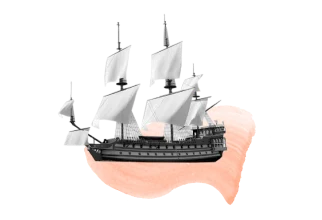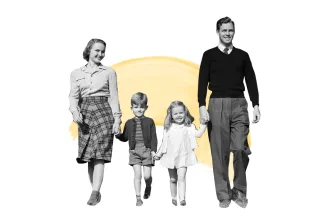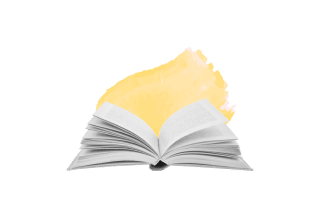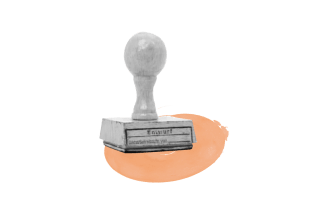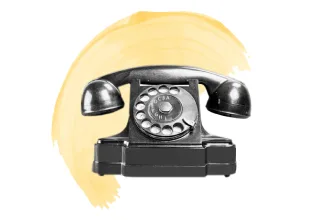Name Directory by Last Name: Last Names Starting with Ca
Explore millions of names to discover rich genealogical details and uncover your family's history
Enter a name to research
Last name meanings and origins
- Campbell
The surname Campbell has its origins in Scotland, specifically deriving from the Gaelic name "Caimbeul," which translates to "crooked mouth." This name is believed to have first appeared in the 12th century, associated with the ancient Scottish clan of Campbell, which became one of the most powerful and influential clans in Scottish history. The Campbells were known for their significant roles in the feudal system, often serving as landowners and military leaders.
- Carter
The surname Carter has its origins in medieval England, deriving from the Old French word "carretier," which means "one who transports goods by cart." This occupational surname first appeared in the 12th century, particularly in the regions of England where trade and commerce flourished. Carters were essential to the economy, facilitating the movement of goods and materials, and their role was vital in both urban and rural settings.
- Carroll
The surname Carroll has its roots in Ireland, deriving from the Gaelic name "O' Cearbhaill," which means "descendant of Cearbhall." The name Cearbhall itself is believed to mean "fierce in battle" or "warrior," reflecting the martial heritage of the early bearers of the name. The O'Carrolls were a prominent family in the medieval period, particularly in the region of Offaly, where they were known as chieftains and landowners.
- Carpenter
The surname Carpenter has its roots in the Old French word "carpentier," which itself derives from the Latin "carpentarius," meaning "wagon maker" or "carpenter." This occupational surname first appeared in England after the Norman Conquest of 1066, when skilled tradesmen were in high demand for the construction of buildings and ships. Carpenters were essential in medieval society, responsible for crafting wooden structures, furniture, and tools, which made the name synonymous with craftsmanship and skill.
- Cameron
The surname Cameron has its historical roots in Scotland, particularly associated with the Gaelic term "cam shròn," which translates to "crooked nose." This name likely originated as a nickname for individuals with distinctive facial features and eventually evolved into a hereditary surname. The earliest recorded instances of the surname date back to the 13th century, with the Cameron clan emerging prominently in the Scottish Highlands.
- Carlson
The surname Carlson has its roots in Scandinavia, particularly in Sweden, where it is derived from the given name Karl, meaning "man" or "free man." The suffix "-son" indicates "son of," thus Carlson translates to "son of Karl." This patronymic naming convention became prevalent in the Nordic countries during the Middle Ages, reflecting the importance of lineage and family ties in Scandinavian culture. Over time, the surname spread beyond Sweden, particularly during the 19th and early 20th centuries, as many Scandinavians emigrated to the United States and other parts of the world in search of better opportunities.
- Caldwell
The surname Caldwell has its roots in Scotland and England, with its earliest recorded instances dating back to the 12th century. The name is derived from the Old English elements "cauld," meaning "cold," and "wella," meaning "spring" or "stream," suggesting a geographical origin related to a cold water source.
- Carson
The surname Carson has its historical roots primarily in Scotland and Ireland, deriving from the Gaelic name "MacCarson," which means "son of Carson." The name itself is believed to have originated from the Old Norse personal name "Kár," which translates to "the one who is brave" or "the one who is strong." The surname first appeared in historical records during the medieval period, with its bearers often associated with various occupations such as farming, trade, and military service. Over time, the name became more widespread, particularly in the 19th century, as many Carsons emigrated to the United States and other countries, bringing their name and heritage with them. Culturally, the surname Carson has several variations across different regions, including "Carson" in English-speaking countries and "Carsonne" in French contexts.
- Carey
The surname Carey has its historical roots in both Irish and English origins, with the Irish variant deriving from the Gaelic "O'Ceara," meaning "descendant of Ceara," a personal name that may have meant "dark" or "black." The name is believed to have first appeared in Ireland around the 11th century, particularly in the province of Munster. In England, the surname can be traced back to the Old French "Carre," which means "a place of enclosure," and was introduced after the Norman Conquest of 1066.
- Cannon
The surname Cannon has its historical roots in England, deriving from the Old French word "canon," which referred to a church official or a member of the clergy. The name likely emerged in the medieval period, particularly after the Norman Conquest of 1066, when many French terms and names were adopted into the English language.
- Casey
The surname Casey has its roots in Ireland, derived from the Gaelic name "O'Cathasaigh," which means "descendant of Cathasach," with "cath" meaning "battle." The name first appeared in historical records in the 11th century, primarily in the province of Munster. Over time, the Casey family became associated with various occupations, including farming and military service, reflecting the agrarian and warrior culture of early Irish society.
- Cain
The surname Cain has deep historical roots, tracing back to biblical times, specifically to the Old Testament, where Cain is known as the firstborn son of Adam and Eve. The name itself is derived from the Hebrew word "Qayin," which is often interpreted to mean "acquired" or "possession." Over time, the surname has evolved and appeared in various forms across different cultures, often associated with themes of agriculture and land ownership, reflecting the agrarian societies in which early bearers of the name lived.
- Castro
The surname Castro has its roots in the Iberian Peninsula, particularly in Spain and Portugal, where it is derived from the Latin word "castrum," meaning "fort" or "castle." This surname likely originated as a topographic name for individuals who lived near or were associated with a fortified place. The earliest records of the surname date back to the Middle Ages, with notable mentions in historical documents from the 12th century.
- Case
The surname Case has its historical roots primarily in England, where it is believed to have originated from the Old French word "case," meaning "a box" or "a case." This suggests that the name may have been occupational, referring to someone who made or sold boxes or containers. The surname first appeared in written records in the medieval period, with variations in spelling such as "Casse" and "Cays." Over time, the name became associated with various social roles, including tradesmen and artisans, reflecting the economic activities of the communities in which they lived.
- Callahan
The surname Callahan has its roots in Ireland, deriving from the Gaelic name "O'Ceallachain," which means "descendant of Ceallachan." The name Ceallachan is believed to be derived from the word "ceall," meaning "church," suggesting a historical connection to ecclesiastical roles or locations. The O'Ceallachain family was originally associated with the province of Munster, particularly in County Kerry, where they were part of the Gaelic nobility.
- Castillo
The surname Castillo has its roots in the Spanish language, deriving from the word "castillo," which means "castle." Historically, it is believed to have originated in the Iberian Peninsula, particularly in regions where castles were prominent, serving as fortifications during the Middle Ages. The surname likely began as a topographic name for individuals who lived near or worked in a castle, or it could have been a nickname for someone who was associated with the nobility or military roles linked to these structures.
- Caron
The surname Caron has its historical roots primarily in France, where it is believed to have originated from the Old French word "caron," meaning "little man" or "dwarf." The name first appeared in written records during the medieval period, particularly in the northern regions of France. Over time, the surname became associated with various occupations, including those of artisans and laborers, reflecting the social roles of individuals who bore the name.
- Calhoun
The surname Calhoun has its historical roots in Scotland, particularly in the region of Lanarkshire. The name is derived from the Gaelic "Calhoun," which is believed to mean "narrow" or "slender," possibly referring to a geographical feature or a physical characteristic of the early bearers.
- Camp
The surname Camp has its historical roots in medieval England, deriving from the Old French word "camp," which means "field" or "enclosure." It is believed to have first appeared in the 12th century, particularly in regions where the Normans settled after the Conquest of 1066. The name was often associated with individuals who lived near or worked on fields or camps, possibly indicating a connection to agricultural occupations or military encampments.
- Cassidy
The surname Cassidy has its roots in Ireland, deriving from the Gaelic name "O'Cathasaigh," which means "descendant of Cathasach." The name Cathasach itself is derived from the word "cath," meaning "battle," suggesting a lineage associated with warriors or those who were strong in battle. The O'Cathasaigh clan was historically located in County Fermanagh, where they were known as a prominent family during the medieval period.
- Carney
The surname Carney has its historical roots primarily in Ireland, deriving from the Gaelic name "O'Carna," which means "descendant of Carna." The name Carna itself is believed to be derived from the word "carn," meaning "a heap of stones" or "a cairn," which often signifies a burial mound or a memorial. The O'Carna family was historically associated with the province of Connacht, particularly in County Galway.
- Cartwright
The surname Cartwright has its historical origins in England, deriving from the Old English terms "cyrt" (meaning "cart") and "wyrhta" (meaning "wright" or "maker"). This indicates that the name was originally occupational, referring to someone who made carts or wagons, a vital trade in agrarian societies where transportation of goods was essential.
- Calvert
The surname Calvert has its historical roots in England, particularly associated with the Old French term "calvert," which means "a maker of caps" or "a cap maker." The name first appeared in the medieval period, with records dating back to the 13th century. It is believed to have originated in the region of Lancashire, where the Calvert family became prominent landowners.
- Carlsson
The surname Carlsson has its roots in Scandinavia, particularly in Sweden, where it is derived from the given name Carl, meaning "free man" or "man." The suffix "-sson" translates to "son of," indicating a patronymic lineage that was common in Nordic naming conventions. The surname likely emerged in the medieval period, around the 13th century, as surnames began to be adopted for identification purposes.
- Castle
The surname Castle has its historical roots in the Old English word "castel," which means a fortified structure or stronghold. This surname likely originated in medieval England, where it was used to denote individuals who lived near or worked at a castle, or perhaps those who were associated with the construction or maintenance of such fortifications.
- Carver
The surname Carver has its historical roots in England, deriving from the Old French word "carver," which means "to carve." This occupational surname likely originated in the medieval period, when individuals were often identified by their trade or profession. Carvers were skilled artisans who worked with wood, stone, or other materials, creating intricate designs and functional items.
- Cahill
The surname Cahill has its roots in Ireland, deriving from the Gaelic name "O'Cathail," which means "descendant of Cathal." The name Cathal itself is derived from the Old Irish elements "cath," meaning "battle," and "all," meaning "mighty" or "powerful." The Cahills are believed to have originated in the province of Munster, particularly in County Kerry and County Clare, where they were part of the Gaelic nobility. Over time, the surname became associated with various occupations, including farming and local leadership roles, as many bearers of the name were involved in the management of land and community affairs.
- Cash
The surname Cash has its historical roots primarily in England and Ireland, with its earliest appearances dating back to the medieval period. The name is believed to derive from the Old French word "cachier," meaning "to catch," which may have been used to denote someone who was a hunter or a fisherman.
- Carlton
The surname Carlton has its historical roots in England, deriving from the Old English elements "ceorl," meaning "freeman" or "peasant," and "tun," meaning "enclosure" or "settlement." The name is believed to have originated in various locations named Carlton, particularly in Yorkshire and Lincolnshire, where it was used to denote individuals who lived in or were associated with these settlements. Over time, the surname became hereditary, with bearers often linked to agricultural or rural occupations, reflecting the agrarian society of medieval England.
- Carnegie
The surname Carnegie has its roots in Scotland, specifically deriving from the Gaelic term "Cairn Eige," which translates to "the place of the cairn." The name first appeared in historical records in the 12th century, associated with the Carnegie family of Kinnaird, near Brechin in Angus. Over time, the surname became linked to various occupations, particularly in land ownership and agriculture, as many bearers of the name were involved in the management of estates.
- Carmichael
The surname Carmichael has its roots in Scotland, specifically deriving from the Gaelic "Carmichael," which translates to "the place of the chapel." The name is believed to have originated in the 12th century, associated with a village in the Scottish Borders. Historically, the Carmichaels were landowners and were often linked to the church, reflecting the name's ecclesiastical connotation.
- Carlisle
The surname Carlisle has its roots in England, specifically deriving from the city of Carlisle in Cumbria. The name is believed to originate from the Old Welsh word "caer," meaning "fort," combined with the Latin "locus," meaning "place." This suggests a historical connection to the Roman fortifications in the area, indicating that the name may have first appeared in the early medieval period as a locational surname for those who lived near or within the fortified town.
- Cary
The surname Cary has its historical roots in England, with origins tracing back to the medieval period. It is derived from the Old French name "Caire," which itself is believed to have originated from the Latin "carrus," meaning "carriage" or "cart." The name likely referred to someone who was a cart driver or involved in the transportation of goods.
- Cabrera
The surname Cabrera has its historical roots in Spain, particularly in the regions of Castile and León, where it is believed to have originated during the Middle Ages. The name is derived from the Spanish word "cabrera," which translates to "goatherd" or "one who tends goats," indicating that the original bearers of the surname may have been involved in pastoral occupations.
- Cavanaugh
The surname Cavanaugh has its roots in Ireland, deriving from the Gaelic name "Caomhánach," which means "descendant of Caomhán," a personal name that translates to "gentle" or "kind." The name first appeared in historical records in the 12th century, primarily associated with the province of Connacht. Over time, the Cavanaugh family became prominent in various regions of Ireland, particularly in counties like Leitrim and Cavan, where they were often linked to the Gaelic nobility.
- Campos
The surname Campos has its roots in the Spanish and Portuguese languages, deriving from the word "campo," which means "field" or "countryside." Historically, it is believed to have originated in the Iberian Peninsula, with early records dating back to the Middle Ages. The surname likely referred to individuals who lived near or worked in fields, suggesting an agrarian lifestyle.
- Carrier
The surname Carrier has its historical roots in medieval Europe, particularly in France, where it is believed to have originated from the Old French word "carrier," meaning "to carry" or "to transport." This occupational surname likely referred to individuals who worked as carriers or porters, transporting goods and people. The name first appeared in written records during the 12th century, and as trade and commerce flourished in the Middle Ages, the role of carriers became increasingly significant.
- Carpentier
The surname Carpentier has its roots in the Old French word "carpentier," which translates to "carpenter" in English, indicating an occupational origin. This surname likely emerged in medieval France, where surnames began to be adopted in the 12th century, often reflecting the profession or trade of an individual.
- Carrillo
The surname Carrillo has its roots in the Spanish language and is believed to have originated from the word "carrillo," which translates to "cheek" in English. This surname is thought to have first appeared in the Iberian Peninsula, particularly in regions that are now part of modern-day Spain, during the Middle Ages.
- Carl
The surname Carl has its roots in the Germanic and Scandinavian languages, deriving from the Old High German word "karal," meaning "man" or "free man." It first appeared in written records during the early medieval period, particularly in regions that are now part of modern-day Germany and Scandinavia. Over time, the name evolved into various forms, including Karl and Charles, and became associated with nobility and leadership, as it was borne by several kings and emperors throughout European history.
Start your family tree for free
Start by entering a few names and MyHeritage will do the rest, so you can make meaningful discoveries
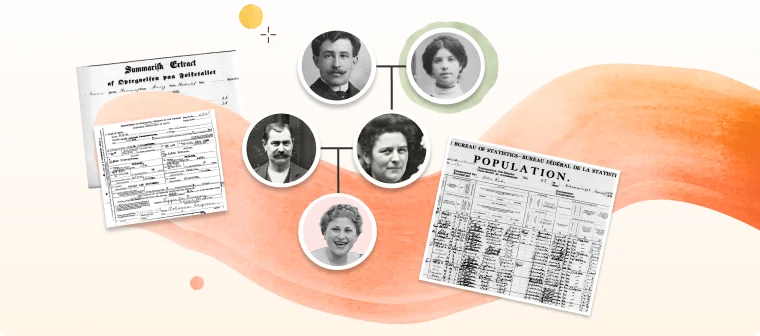
Explore historical records

Explore 1,810,427,080 census and voter list records to get a detailed snapshot of your ancestors' lives. Discover names, ages, occupations, family relationships, residences, and much more.

Explore 4,647,704,406 birth, marriage, and death records. Uncover valuable details about major family milestones and find names, dates, places, occupations, and residences of your ancestors and relatives.
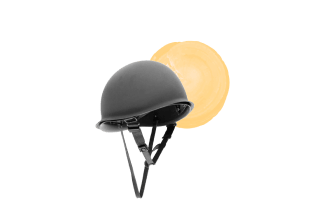
Search 266,544,192 military records and discover the stories of courage and resilience in your family history. Military records include enlistment dates, ranks, locations, and even physical descriptions.
Embark on a fascinating journey to discover your family history
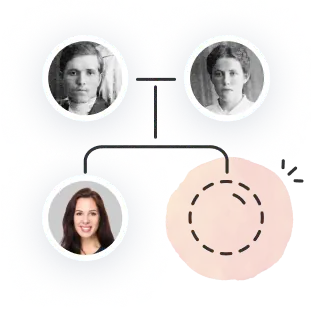
Start by adding a few names. Myheritage's automatic matching technology will help you expand your family tree and delight you with new discoveries.
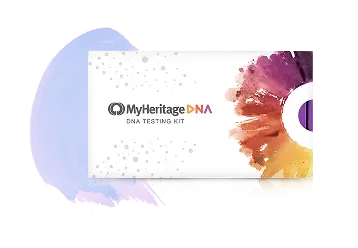
Reveal your ethnic origins and find relatives you never knew existed with our simple DNA kit.
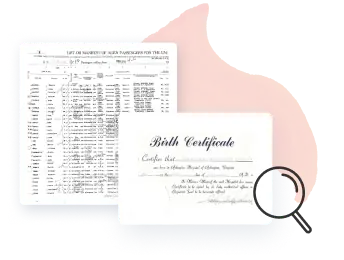
Dive into MyHeritage's international collection of 36.7 billion historical records - start with a name of an ancestor and see what our collections can reveal about your family history.
About MyHeritage

MyHeritage is the leading global platform for family history. It enriches the lives of people worldwide by enabling them to uncover more about themselves and where they belong. With a suite of intuitive products, billions of historical records, an affordable at-home DNA test, and AI-powered photo tools, MyHeritage creates a meaningful discovery experience that is deeply rewarding. The MyHeritage platform is enjoyed by tens of millions of people around the world who treasure and celebrate their heritage.
